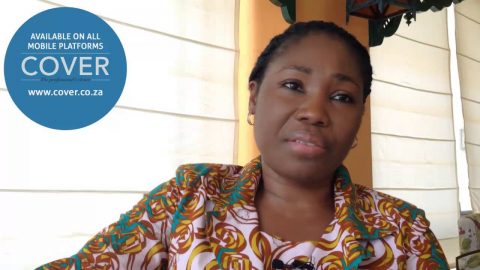Risk Managers Charge Business Owners to Invest on Global Politics, Policy Making
Business News, Featured, Latest Headlines Wednesday, January 25th, 2017
By Tajudeen Balogun
LAGOS, NIGERIA (AFRICAN EXAMINER) – Business organizations in Nigeria have been charged to ”invest more resources” on better monitoring of politics and policy-making around the world in 2017, so as to mitigate volatility risks and anticipate any sudden changes of rules that could impact markets’ activities.
This is against the background of the confirmation by the country’s risk managers, who sighted tough macroeconomic conditions and market volatility as their top two risks in the current fiscal year.
Speaking at a press conference in Lagos on the risks that face businesses in Nigeria, the CEO Allianz Global Corporate & Specialty (AGCS) Delphine Maïdou, declared ”Nigeria faces macroeconomic challenges including low commodity prices, the Chinese slowdown and the tightening of US monetary policy and also suffers their own internal pressures such as inflation, weak domestic demand and socio-political tensions”.
She indicated ”the country’s growth is held back by weaker macroeconomic environment, the struggling financial sector, underdeveloped infrastructure, insufficient health and education”.
While noting a study by a AGCS subsidiary, which posited that there have been 600 to 700 new trade barriers introduced globally every year since 2014, Maidou at the briefing highlighted other biggest threats to Nigeria business and these include market volatility and corruption; Political risks and violence, adding that this was still a major challenge largely due to terrorism and kidnap for ransom.
The 6th annual AGCS Risk Barometer Maidou said analysed that Cyber risk concerns rank fifth in Nigeria and it was driven by impact of indirect attacks, regulatory threats and technical and employee error in digitalized production environment.
While Business interruption (BI) continues to lead the ranking globally, for the fifth year in a row, she disclosed that the ”risk is ranked 8th in Nigeria”.
”Corruption was ranked fourth indicating that it is still a concern in the country. Corruption in Nigeria could cost up to 37% of GDP by 2030 if it’s not dealt with immediately. This cost is estimated to be nearly $2,000 per person by 2030. Corruption is ranked second as one of the most problematic factors for doing business in Nigeria in the Global Competitiveness Report. A significant reduction in corruption will boost current per capita income and improve the lives of many in Nigeria.
”Political risks and violence is still a major challenge largely due to terrorism and kidnap for ransom (KNR). The overall risk for Nigeria in 2017 is high on crime, terrorism, conflict, political violence and kidnap.
”The resurgence of violence in the Niger Delta is expected to continue into 2017. Militant groups are likely to continue high-profile attacks on oil and gas infrastructure to press the federal government into meeting its demands, which include greater autonomy for the region and a greater share of the oil wealth, which may be untenable considering Nigeria’s current fiscal woes. Greater military action risks increasing anti-government sentiment.
”Kidnapping, primarily for the purposes of financial gain, will remain a complex and multifaceted security threat in Nigeria in 2017. The country was one of the world’s top five worst kidnapping-affected countries and the region’s kidnapping capital” Maidou said.
She justified that BI continues to lead the ranking for the fifth year in a row, primarily because it could lead to significant income losses, as well as associated with new triggers especially non-physical damage or intangible perils, such as cyber incidents, and disruption caused by political violence, strikes and terror attacks.
”This trend is driven, in part, by the rise of the “Internet of Things” (IoT) and the ever-greater interconnectivity of machines, companies and their supply chains which can easily multiply losses in case of an incident. Companies are also facing potential financial losses with the changing political landscape leading to fears of increasing protectionism and anti-globalization” the Allianz boss asserted.
Also speaking at the press conference, CEO AGCS SE Chris Fischer Hirs, stated “companies worldwide are bracing for a year of uncertainty,” confirming. “Unpredictable changes in the legal, geopolitical and market environment around the world are constant items on the agenda of risk managers and the C-suite”.
”A range of new risks are emerging beyond the perennial perils of fire and natural catastrophes which require re-thinking of current monitoring and risk management tools”, Hirs highlighted.
Although, he admitted that digitalization is earning companies new opportunities, still, the Insurance CEO warned that the same invention was shifting the nature of corporate assets from mostly physical to increasingly intangible; bearing new hazards, and most significantly, cyber risks which the current studies accrued (30% of responses).
“Cyber incidents are ranked #5 in Nigeria with the most common threats being from hackers, disgruntled employees, negligence and competitors.
“This is doubled-edged sword to the country as Africa has a particular role in embracing and responding to new technologies compared to mature markets while speeding up cyber security and personal data protection legislations” the Head of Financial Lines AGCS Africa, Nobuhle Nkosi restated.
Allianz Barometer analysed that the cyber threat has gone beyond hacking and privacy as well as data breaches, noting that new data protection regulations would exacerbate the fall-out from these for businesses.
The multinational underwriting firm also said increasing interconnectivity and sophistication of cyber-attacks posed not only a huge direct risk for companies but also indirectly, via exposed critical infrastructures such as IT, water or power supply.
While confirming that failure to submit or interpret data correctly could stop production, the company urged businesses to think about data as an asset and ”what prevents it from being used”.
The AGCS report is based on a survey conducted among 1,237 risk experts from 55 countries. For Nigerian study, it worked with the Association of Enterprise Risk Management Professionals Nigeria (ERM), Risk Managers Society of Nigeria (RIMSON) and Risk Managers Association of Nigeria (RIMAN).
Related Posts
Short URL: https://www.africanexaminer.com/?p=37717






















